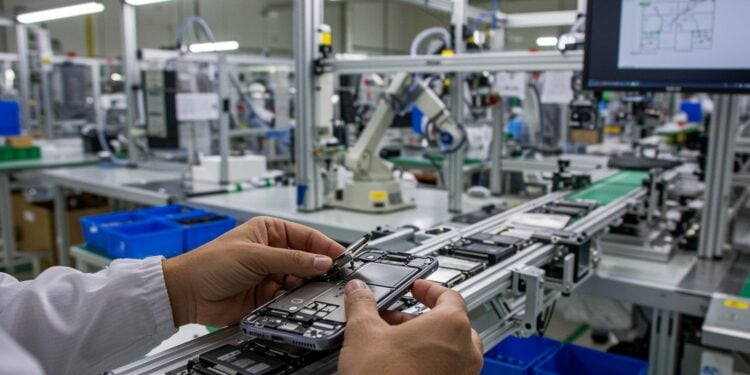Apple is increasing the pressure on its suppliers. Anyone who wants to continue to secure manufacturing contracts must rely more heavily on robotics and automation. The company is now making this transition a permanent requirement throughout its entire supply chain. The goal is to reduce dependence on labor, ensure production quality, and reduce costs in the long term.
Apple has been pushing ahead with automation in manufacturing for more than two years. Previously, the introduction of robot-assisted systems was only recommended, but now it's mandatory. This puts pressure on suppliers, as Apple no longer finances investments itself. Responsibility for new equipment and processes now lies entirely with the partners.
Robotics as a standard requirement
According to reports from DigiTimes, Apple has declared automation a basic requirement. All core products—iPhone, iPad, Mac, and Apple Watch—are affected by this requirement. Suppliers must integrate robotic systems independently if they want to win new or existing contracts.
Departure from previous practice
In the past, Apple regularly invested in tools and machinery to enforce its own specifications. This approach has changed: From now on, the company expects suppliers to finance automation themselves. This means significant investments in robotics systems and adjustments to production processes, without direct support from Apple.
Consequences for suppliers
The new requirements are having a noticeable impact. High initial investments and disruptions during the transition to robotics are putting a strain on the margins of many partners. Some suppliers are already reporting declining profitability. This poses significant challenges for smaller companies in particular.
Goals of automation
Apple is pursuing several goals simultaneously with its robotics initiative. Automation is intended to stabilize production quality worldwide, enable digital inspections, and mitigate risks from skilled labor shortages or political instability. Furthermore, standardized robotics will facilitate the integration of new partners when manufacturing capacity is relocated from China to other countries. The long-term reduction of production costs also plays an important role.
Sustainability remains part of the strategy
In addition to automation, Apple remains committed to its climate strategy. The goal of achieving carbon neutrality across its entire supply chain by 2030 remains unchanged. In contrast to its investments in robotics, Apple continues to support its partners in transitioning to energy-efficient facilities and using sustainable materials.
Apple is changing the rules of manufacturing
By mandating automation, Apple is setting the course for a profound change in global electronics manufacturing. Robotics will become an integral part of the supply chain, while suppliers must bear the financial risks. For Apple, this move means more stability, better quality, and less dependence on labor. For suppliers, however, it brings costs, adjustments, and the pressure to implement new technologies quickly. Those who want to remain part of the network have no choice but to follow this course. (Image: Shutterstock / Shutterstock AI)
- iPhone Fold: Analyst refutes rumor about Touch ID in the display
- iPhone 17: No more SIM card slot in the EU?
- iPhone 17 Pro Clear Case – Leak shows radical redesign
- iPhone 17: TechWoven cases with a striking number of holes
- iPhone 17 gets accessories with magnetic carrying concept
- Apple secures almost half of TSMC's 2nm chips
- Apple is testing premium iPad Pro displays for future iPhones
- Apple discusses acquisition of Mistral AI and Perplexity
- AirPods Pro 3: These design changes are in the works
- iPhone 17 Pro: Is reverse wireless charging finally coming?
- iPhone 17: New case leaks show exciting colors
- AirPods Pro 3 will be released in 2025 with exciting features
- Apple Health+: AI-powered health coach from 2026
- iPhone future plans: Three designs in three years
- AirPods Max: Why Apple isn't planning a real update
- Foldable iPhone 2026: Apple's biggest smartphone leap
- Apple is negotiating with Google: Will Gemini AI soon come to Siri?
- iPhone 18: Apple focuses on simplifying the camera button
- Apple is planning a completely new strategy for the iPhone 18





